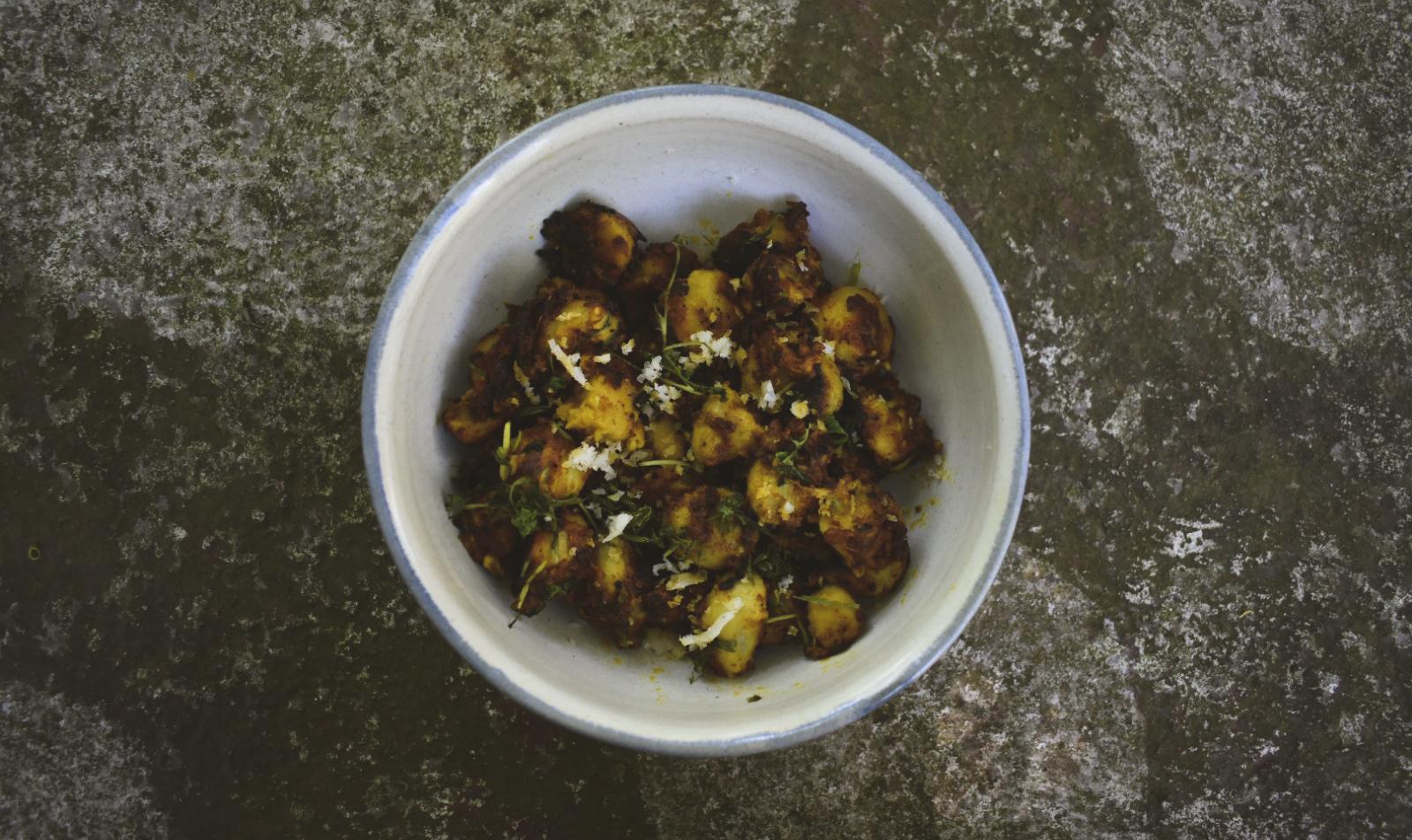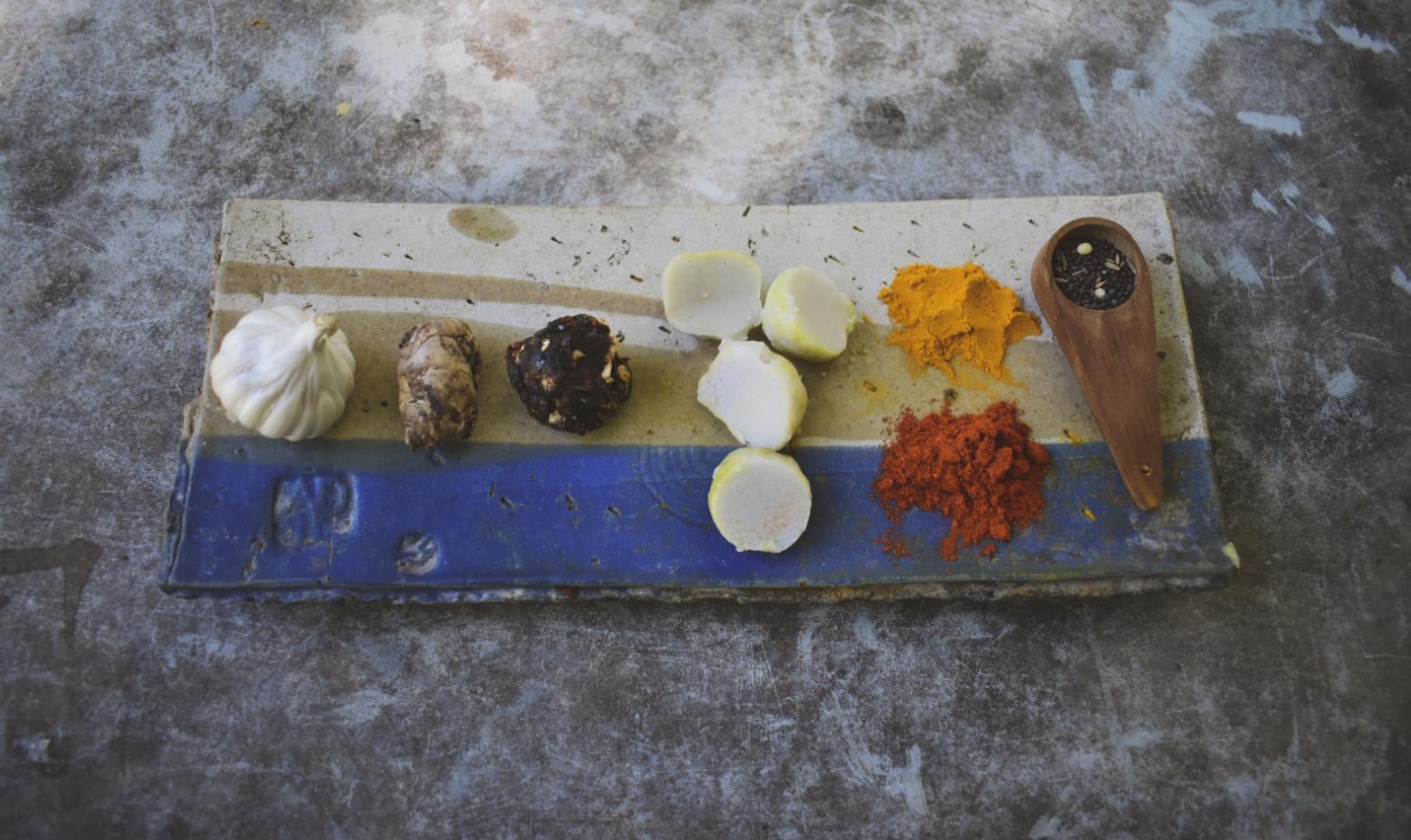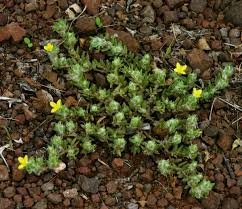Taro / Arbi
January 4, 2023 2023-01-22 22:41Taro / Arbi
Colocasia esculenta
Taro is believed to have been one of the earliest cultivated plants. Arbi is how it is known in Hindi, and Seppankizhangu in Tamil. It is thought to be native to Southern India and Southeast Asia, but is now widely naturalized, including in Africa, the Caribbean and the Americas.

It is one of the smallest cultivated edible tubers – usually just a couple of inches long. It is tasty whether boiled, steamed or stir-fried with spices, and it even makes delicious fries! It greatly resembles potato and is tasty as well as highly nutritious.
The particular value of Taro as a plant is that it thrives even in shaded areas. This is of particular relevance to our approach to permaculture. In creating a food-forest, where a diversity of trees and plants naturally shade a lot of ground space, these plants are very well suited to a role that cannot be filled in by many other plants as potent occupiers of these shaded areas.
The Seppankizhangu seems to be gradually becoming forgotten, I even know some farmers who reap plenty of these tubers but are not selling it due to insufficient demand. It thus appears that people may have become decreasingly familiar with how to use this wonderful vegetable. To better respect this beneficial nutritional resource, we ought to consider the various recipe options available to us. We could even well consider integrating it into our diet on a regular basis – like once or twice a week. This is the only hope to sustain a cultural heritage – the only way to do that is to keep this alive simply by using it. At solitude, we boil the Taro, peel the skin off and marinate it in ginger-garlic paste, tamarind, turmeric, chilli powder and salt, before frying it in some oil with mustard seeds. It’s really that easy.

At Solitude Farm, we started growing it a few years ago. It has proved to be extremely elementary to grow – by simply using the tuber for seed, in beds with sufficient, regular watering. The Taro is truly one of those elements on our Road back to Nature which, being a potential staple, can even bring us closer together as a community, as it was in the days of yore.

Permaculture Weekend Workshop
Join us on a road back to nature with this intensive and hands-on workshop that will empower you to start growing your own food and gain insight into knowing where your food comes from!

Weekly
Mini-Workshop
Join us on a road back to nature with this intensive and hands-on workshop that will empower you to start growing your own food and gain insight into knowing where your food comes from!

Permaculture Weekend Workshop
Join us on a road back to nature with this intensive and hands-on workshop that will empower you to start growing your own food and gain insight into knowing where your food comes from!

Weekly
Mini-Workshop
Join us on a road back to nature with this intensive and hands-on workshop that will empower you to start growing your own food and gain insight into knowing where your food comes from!











